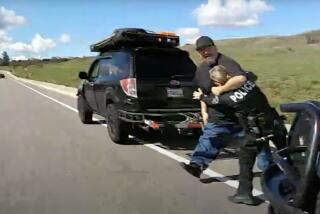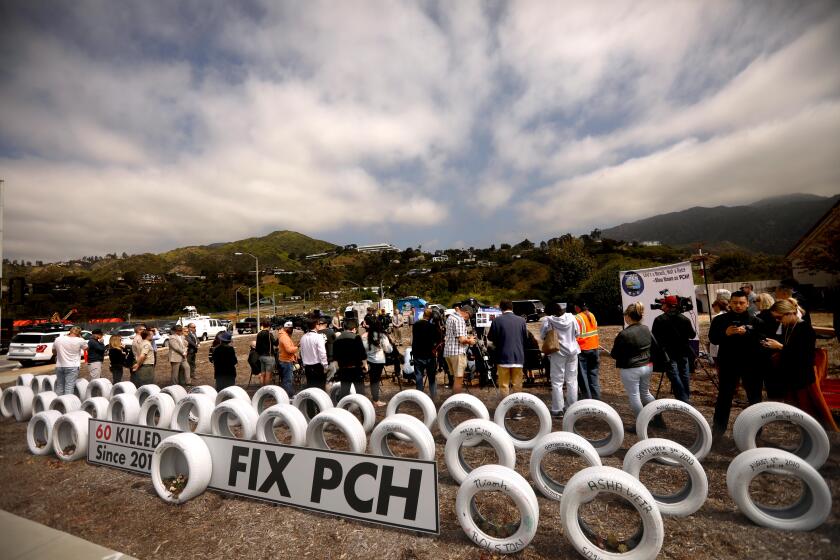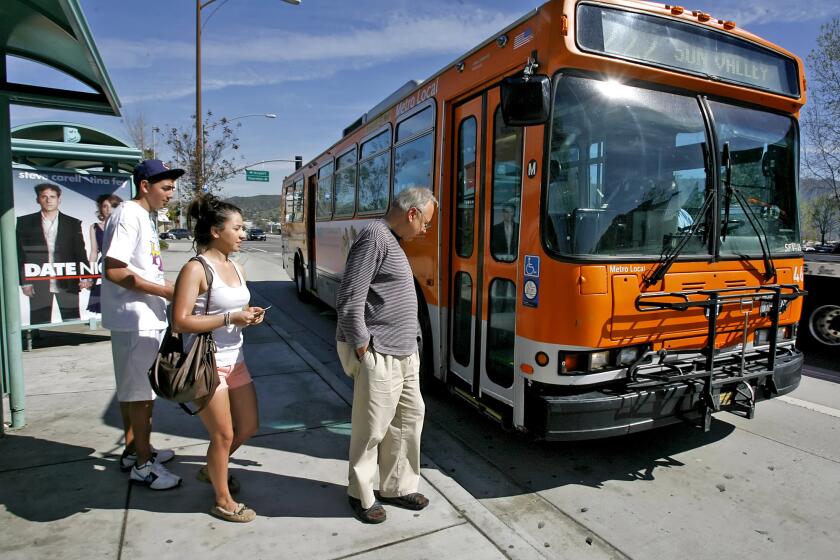RTD Adopts an Anti-Apartheid Contract Policy of Its Own
Following the lead of other state and local agencies, the Southern California Rapid Transit District Thursday adopted an anti-apartheid policy restricting contracts with firms doing business in South Africa.
However, the policy may have little or no effect on hundreds of millions of dollars in contracts to be let in the next few years to build the Metro Rail transit system, the RTD’s biggest project.
RTD General Manager John Dyer said federal regulations do not permit ties to South Africa to be considered in letting contracts on projects such as Metro Rail. “I don’t believe any Metro Rail contracts will be affected,” he said.
He said that situation could change if Congress approves pending anti-apartheid legislation that would apply to those regulations.
As for the other 8,000 to 10,000 general operating contracts RTD issues each year, RTD officials had no estimate of how many could be excluded from companies with ties to South Africa. Many would be exempt because they also involve federal funds or must be competitively bid in accordance with state law.
Dyer denied that the exemptions and limitations of the RTD policy make it largely symbolic. “It’s more than symbolic. It will have a considerable effect on a number of contracts we let,” he said.
The policy, which was approved with little discussion by RTD board members, is almost identical to a policy adopted recently the City of Los Angeles.
Meanwhile, Dyer said, the RTD does still not know how many of its bus drivers may have been operating buses without valid licenses before recent investigations. A new state Department of Motor Vehicles report has found that of 534 RTD drivers initially identified as having license problems last month, 282 were driving legally. Seventy-three drivers corrected license problems after the RTD started investigating Sept. 19, and 179 are still unresolved but appear to have had some license problems, DMV officials said.
Dyer said he could not comment on the DMV report until a case-by-case review is made of the 252 drivers who either updated their licenses or may still have problems. He said, however, that no one with a license problem is driving a bus today.
More to Read
Start your day right
Sign up for Essential California for news, features and recommendations from the L.A. Times and beyond in your inbox six days a week.
You may occasionally receive promotional content from the Los Angeles Times.






